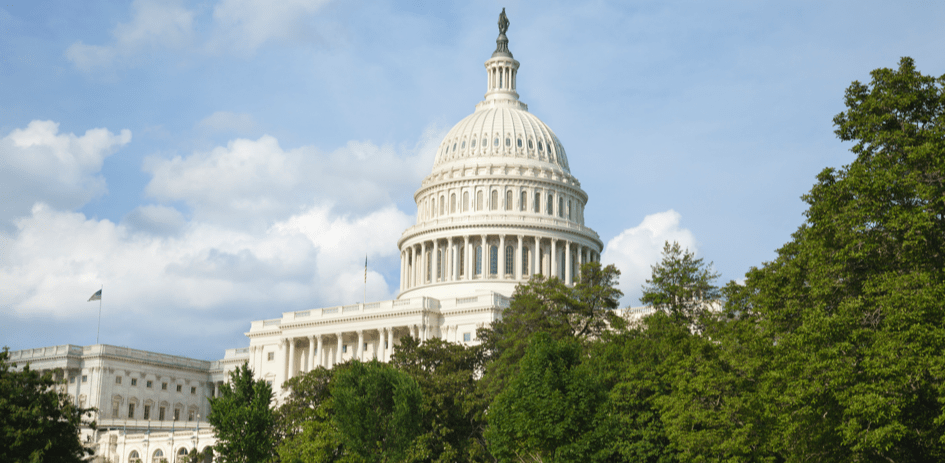Posts tagged bargain collectively

Opinion: Collective Manipulation; Whether in courts or in legislatures, public employee unions need to be reined in.
February 22, 2023 // The book contains countless examples of collective bargaining agreements effectively allowing employees to get away with gross misconduct and preventing managers from sanctioning them for lackluster work. An EPA employee was caught surfing porn in his cubicle at work and was paid for nearly two years before agreeing to retire. An IRS agent systematically denied benefits to African immigrants, repeatedly made discriminatory remarks in the office, and tried to run another employee off the road. His union lawyers got him a deal that left him with a clean personnel record when he left the agency, allowing him to get a job with the Forestry Service. “As a practical matter,” Howard writes, “almost no public employee can be dismissed without a massive managerial commitment,” and even that commitment does not guarantee success. California has 300,000 teachers and only about two or three a year lose their jobs because of poor performance. At the federal level, more employees die at work than face termination for poor performance. Public sector unions provide more than direct financial contributions to political campaigns. Howard recounts how they recruit and train candidates, manage phone banks, lead door-to-door canvassing drives, staff campaigns, and run ads. Such union political activity makes them larger and more influential than other political interest groups. The protracted legal battles former Wisconsin Governor Scott Walker faced after he proposed reining in public-union power supports Howard’s thesis that union power is formidable. Walker beat a union-led recall effort against him, but union opposition to modest changes led to electoral annihilation in New Jersey in the 1990s.
Support staff at UVM Medical Center vote to unionize
January 30, 2023 //
Yale grad students vote to unionize after decadeslong push
January 11, 2023 // Graduate students across the U.S., both at public and private institutions, have pushed in recent years to organize and bargain collectively. Columbia University, another Ivy League school, in 2018 agreed to begin contract negotiations with a union representing its graduate student teaching and research assistants, ending a long battle in which the university denied them the right to unionize.

Union arbitrators are protecting truly awful government employees
October 10, 2022 // Federal personnel challenges go beyond the civil service system. Federal unions are also a big part of the problem. The government was not supposed to operate this way. Congress expressly directed agencies not to tolerate misconduct and to fire poor performers. The Civil Service Reform Act of 1978 even made these directives “Merit System Principles.” But agencies come nowhere close to upholding these principles. Barely a third of federal employees say their agencies remove employees whose performance is persistently poor. Half report poor performers stay on the job and continue to underperform.
Illinois: Labor amendment remains on November ballot after court blocks petition
August 31, 2022 // Amendment 1 would create a state constitutional right for employees to organize and bargain collectively through representatives of their choosing to negotiate wages, hours, and working conditions and to protect their economic welfare and safety at work. The case, Sarah Sachen v. Illinois State Board of Elections, was brought by parents and teachers from Chicago Public Schools and claimed the proposed amendment would unconstitutionally enshrine union powers in the Illinois Constitution. Attorney General Kwame Raoul, Citizen Advisory Coalition to Save Illinois,
Staffers at eight House offices become first to unionize
July 20, 2022 // Congressional workers at eight United States House offices have started unionizing, two months after the House approved a resolution giving them legal protection to organize. A total of 85 House staff workers filed petitions Monday for representation at the Office of Congressional Workplace Rights, according to the Congressional Workers Union which called it a "historic day for congressional staff and our democracy." Rep. Cori Bush of Montana, Rep. Jesus "Chuy" Garcia of Illinois, Reps. Ro Khanna and Ted Lieu of California, Rep. Andy Levin of Michigan, Rep. Alexandria Ocasio-Cortez of New York, Rep. Ilhan Omar of Minnesota, and Rep. Melanie Stansbury of New Mexico.
The history of right to work, 75 years later
June 27, 2022 // “Right to Work is on the move,” Mix said despite Big Labor’s efforts. Five states passed Right to Work laws over the past decade and the Supreme Court issued a landmark ruling in a NRWLDF-won case in 2018, he notes. In Janus v. AFSCME, the U.S. Supreme Court held that forcing any public sector worker to pay union dues as a condition of employment violated their First Amendment rights. Mix and others are urging Congress to instead to pass the National Right to Work Act, which would eliminate forced union dues powers from federal law and provide Right to Work protections for employees nationwide.
Louisville public defenders clash with management over union effort
June 7, 2022 // It is increasingly common for the people charged with upholding that constitutional guarantee to turn to organizing their offices. In April 2020, the American Bar Association reported that unionization among public defenders was on the rise. Cities such as Philadelphia, Los Angeles, and Lancaster, Pennsylvania have seen their public defenders move toward unionization. Jefferson County, Ben Basil, Leo Smith, Kentucky Bar Association, Kentucky Supreme Court, Cassie Chambers Armstrong, Lexington Herald-Leader, American Bar Association,

House gives green light to staffer unionization
May 12, 2022 // The Congressional Workers Union has labored behind the scenes for months to jump-start the unionization process among House offices. And they're not alone.
House tees up vote on union protections for staffers
May 9, 2022 // The resolution introduced by Rep. Andy Levin would address that by finishing a process the House began more than a quarter-century ago. When lawmakers passed the Congressional Accountability Act in 1995, they essentially removed a legislative branch exception to numerous federal statutes, including labor laws. But the House never took the final step of approving regulations issued by the Office of Compliance, now the Office of Congressional Workplace Rights.
